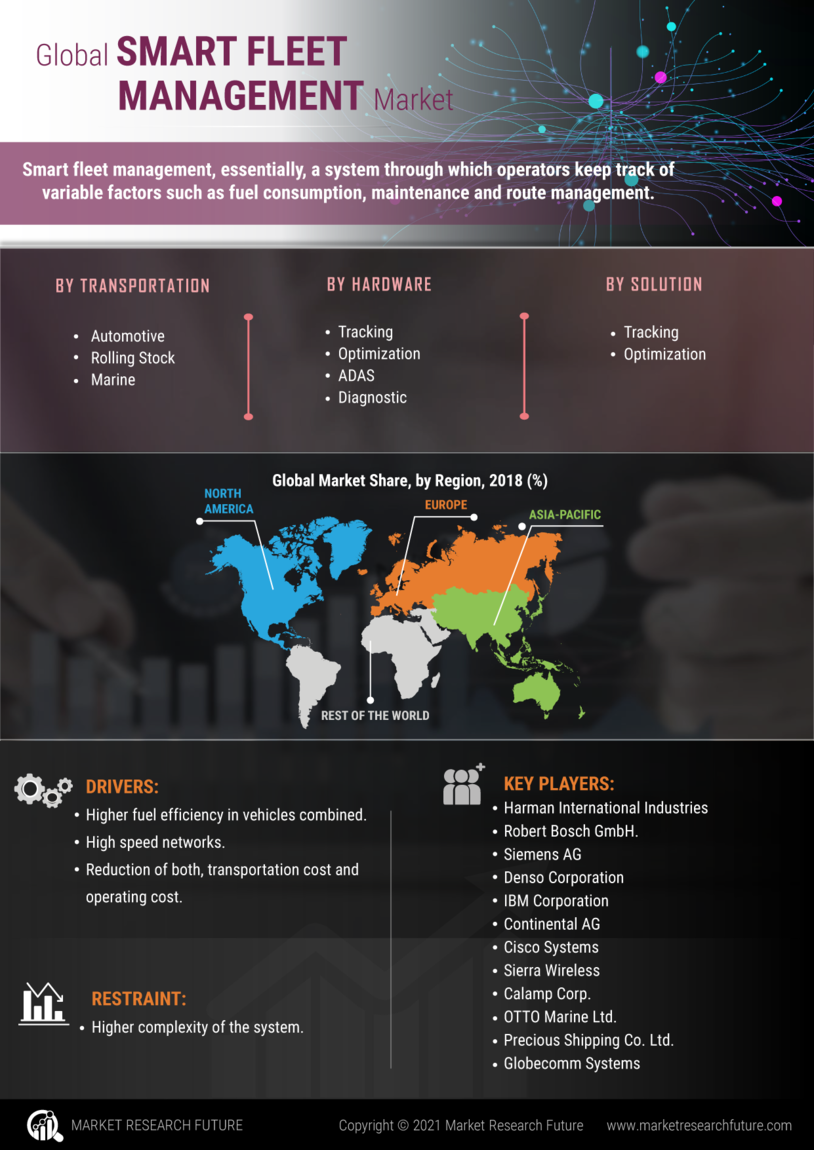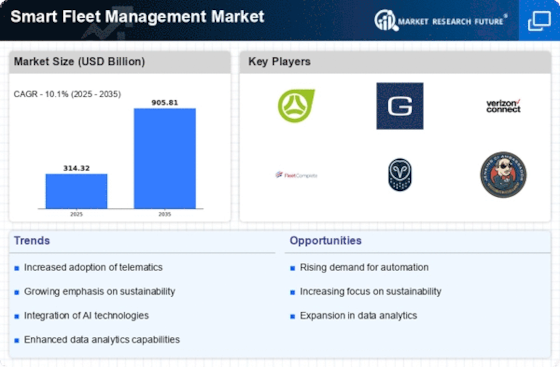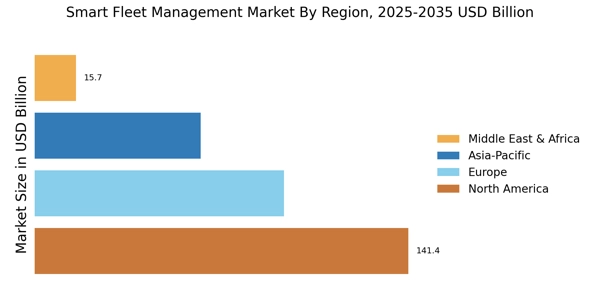Integration of IoT Solutions
The integration of Internet of Things (IoT) solutions is a pivotal driver for the Smart Fleet Management Market. IoT technology enables real-time tracking and monitoring of fleet vehicles, enhancing operational efficiency. By utilizing sensors and connected devices, fleet managers can gather data on vehicle performance, driver behavior, and maintenance needs. This data-driven approach not only reduces operational costs but also improves safety and compliance. According to recent estimates, the adoption of IoT in fleet management could lead to a reduction in fuel consumption by up to 15%. As more companies recognize the benefits of IoT, the demand for smart fleet management solutions is expected to surge, further propelling the market forward.
Rising Demand for Cost Efficiency
The rising demand for cost efficiency is a significant driver in the Smart Fleet Management Market. Companies are increasingly seeking ways to optimize their operations and reduce expenses associated with fleet management. Smart fleet management solutions offer tools for route optimization, fuel management, and predictive maintenance, which can lead to substantial cost savings. Research indicates that organizations implementing these solutions can achieve a reduction in operational costs by approximately 20 to 30%. As businesses strive to enhance their bottom line, the adoption of smart fleet management technologies is expected to accelerate, contributing to the overall growth of the market.
Regulatory Compliance and Safety Standards
Regulatory compliance and safety standards are increasingly influencing the Smart Fleet Management Market. Governments worldwide are implementing stringent regulations aimed at improving road safety and reducing emissions. Fleet operators are required to adhere to these regulations, which often necessitates the adoption of advanced fleet management technologies. For instance, the implementation of electronic logging devices (ELDs) has become mandatory in many regions, ensuring that drivers adhere to hours-of-service regulations. This compliance not only enhances safety but also mitigates the risk of penalties and legal issues for fleet operators. As regulatory frameworks continue to evolve, the demand for smart fleet management solutions that facilitate compliance is likely to grow, driving market expansion.
Advancements in Telecommunication Technologies
Advancements in telecommunication technologies are playing a crucial role in shaping the Smart Fleet Management Market. The proliferation of 4G and 5G networks facilitates seamless communication between vehicles and fleet management systems. This connectivity enables real-time data transmission, allowing fleet managers to make informed decisions quickly. Enhanced telecommunication capabilities also support the integration of advanced technologies such as artificial intelligence and machine learning, which can further optimize fleet operations. As telecommunication infrastructure continues to improve, the potential for smart fleet management solutions to deliver enhanced performance and efficiency is likely to increase, driving market growth.
Growing Emphasis on Environmental Sustainability
The growing emphasis on environmental sustainability is a key driver for the Smart Fleet Management Market. As concerns about climate change and environmental degradation rise, companies are increasingly adopting sustainable practices within their operations. Smart fleet management solutions enable organizations to monitor and reduce their carbon footprint through efficient route planning and vehicle utilization. Additionally, the integration of electric and hybrid vehicles into fleets is becoming more prevalent, further supporting sustainability goals. Market analysis suggests that the shift towards greener fleet management practices could lead to a significant increase in the adoption of smart fleet management technologies, as businesses seek to align with environmental regulations and consumer expectations.


















